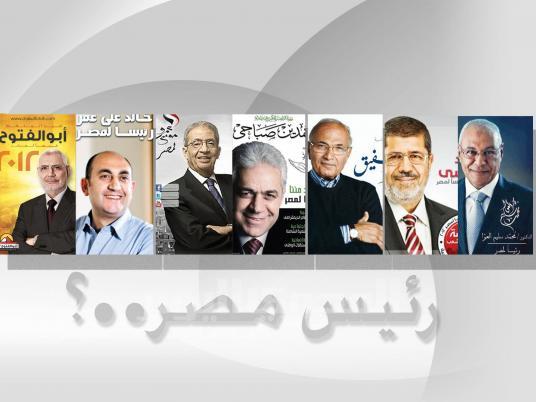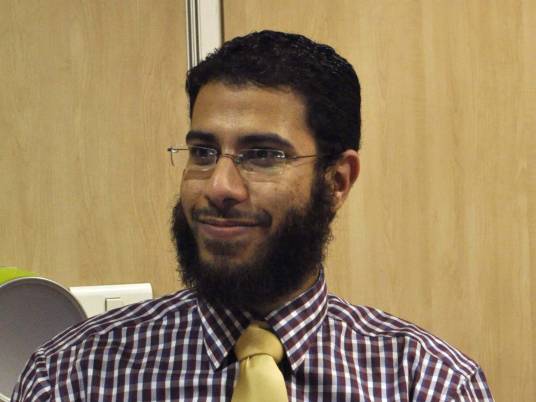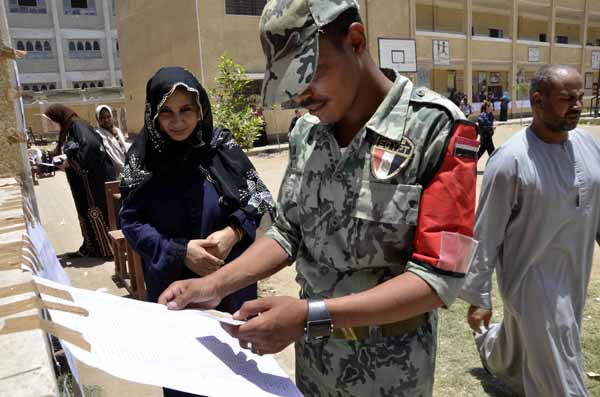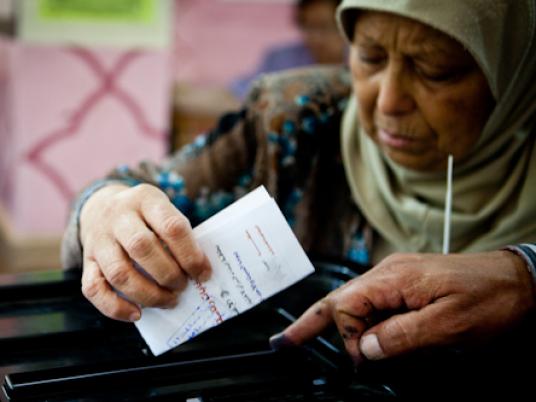
The results of the first round of presidential elections last month have offered some valuable insight into the voting trends of the country’s nascent political reality. But predictions are still near-impossible based on the first round’s results.
In the second round, a runoff between the Muslim Brotherhood’s Mohamed Morsy and Hosni Mubarak’s last Prime Minister Ahmed Shafiq, Egyptians' voting behavior is uncalcuable and likely to be variable amid an environment of constantly shifting factors, experts say.
Ahmed Nagy, head of public opinion studies unit at AlAhram Center for Political and Strategic Studies said that in the first round of elections, there was an unexpected reversal of the constituencies of the Muslim Brotherhood and the former regime.
Both Morsy and Shafiq were able to appeal to residents of rural areas, the lower classes and older age groups, all of whom were largely unwilling to try something new. Thus, Nagy said, many opted to vote for Shafiq in the name of stability, or Morsy, for services.
Within this mostly rural constituency, Shafiq dominated the Nile Delta, a traditional stronghold for the Muslim Brotherhood. Morsy won most of the upper Egyptian governorates, which were formerly known for being controled by prominent families in coordination with the former ruling National Democratic Party.
As a result, Nagy predicts that in the runoffs each side can still retrieve some of the votes they lost to the other. After all, he said, these are constituencies that they used to dominate, and they would only have to activate existing mechanisms to mobilize them.
“Each of the candidates should have learnt their lesson,” Nagy said. “The Brotherhood might have neglected to activate their electoral machine in the Delta thinking that it’s a guaranteed win for them, they should have intensified their campaigning since then. And the same with Shafiq in Upper Egypt.”
One of the biggest revelations from the first round, Nagy said, was the new importance of the middle Nile Delta as a crucial voting block.
Besides having a high population density, the results showed that the region can be fickle, despite apparent Muslim Brotherhood domination. It turned against the MB after it was disappointed with the group’s parliament performance, said Nagy.
“The same block that used to vote for the MB to punish the old regime is now voting for the old regime to punish the MB,” he said.
Nagy also said that the propaganda warning of chaos in case Morsy wins could swing votes in Shafiq’s interest.
But on the other hand, many observers expect a court ruling on Thursday that dissolved the parliament to increase the chances of Morsy. Without the existence of a Brotherhood-dominated parliament, fears of a complete Brotherhood takeover loose traction, and fears of the return of the old regime increase.
As the candidates appear to have a less-than sure grip on to the votes they received in the first round, even less is known about the fate of the votes granted to to former candidates.
Nagy expects almost all of former Arab League secretary general Amr Moussa’s votes, constituting 11 percent of the vote, to go to Shafiq and a large proportion of Islamist Abdel Moneim Abouel Fotouh’s votes (18 percent) to go to Morsy.
Besides that, Nagy said the votes received by the other frontrunners are entirely up for grabs.
“It’s impossible to foresee, this is a country that started to practice politics 6 months ago,” he said.
Seif El Khawanky, founder of Thawra Stats, a non-profit organization that studies public opinion, says that those who lost in the first round didn’t have an identifiable voters block, which makes it difficult to know who their supporters will choose this time around.
Unlike rural vote, the urban vote remains very mysterious. In the first round, the winning candidates took a smaller share, of city-dwellers votes. Urban areas are also not easily identified in blocks, Khawanky said, due to a decision making process that is highly individual, not collective.
Even though the rural vote settled the election this time around, Nagy believes that the days where the urban turnout was not influential are over. Egypt, with all its sectors, will be taking part in the vote now, he said.
In Cairo, Port Said, Kafr El Sheikh, Giza and Red Sea, Hamdeen Sabbahi emerged as the candidate of the revolution, and largely won, receiving a total of 22 percent of the vote nationwide.
Nagy identified the Sabbahi vote as a new phenomenon that he calls “the dream vote”. Mostly young voters from middle and upper classes, Nagy said “the dream vote” cast their votes hoping for a new leader who could achieve their hopes.
Having little else in common, Nagy said these young voters are likely to divide in the runoffs and lose their influence. Nagy expects most of Sabbahi’s voters to boycott, while those who decide to vote are more likely to give their votes to Shafiq rather than Morsy, because of the former prime minister’s promise of a civilian state.
The Salafi vote has been illusive from the beginning. Even though many Salafi groups announced their support of Abouel Fotouh, Nagy said that the groups’ loose affiliations meant that many Salafis ended up voting for Morsy.
Hence, Nagy said that Morsy will not be given any considerabl boosts in the second round from Salafis, since he already won over many of them.
Christian voters, who were divided in the first phase between Shafiq, Moussa and Sabbahi, have only one remaining option. But Nagy doesn’t think they will necessarily form a voting block for Shafiq, as he expects young pro-revolutionary Christians to boycott the elections.




